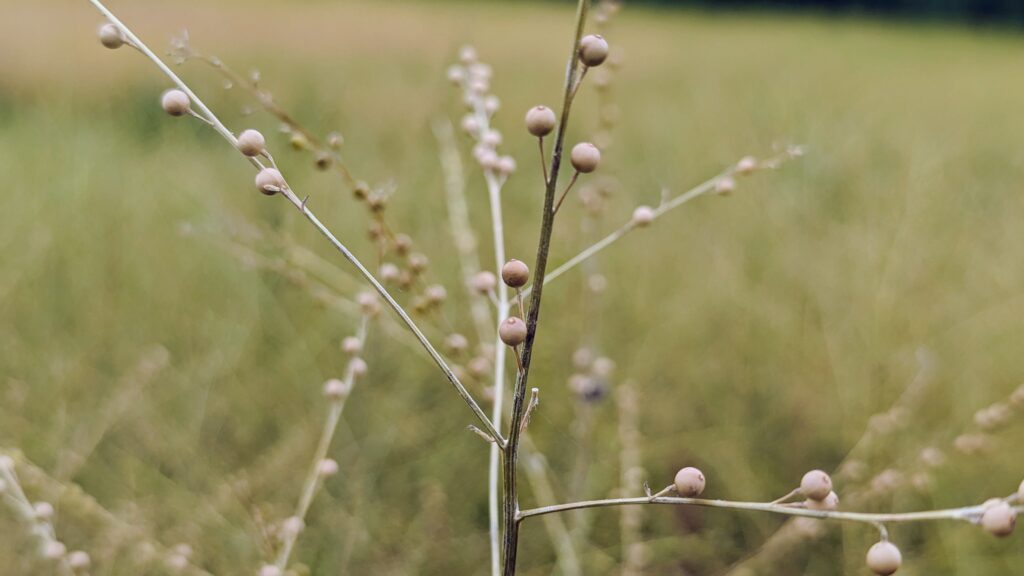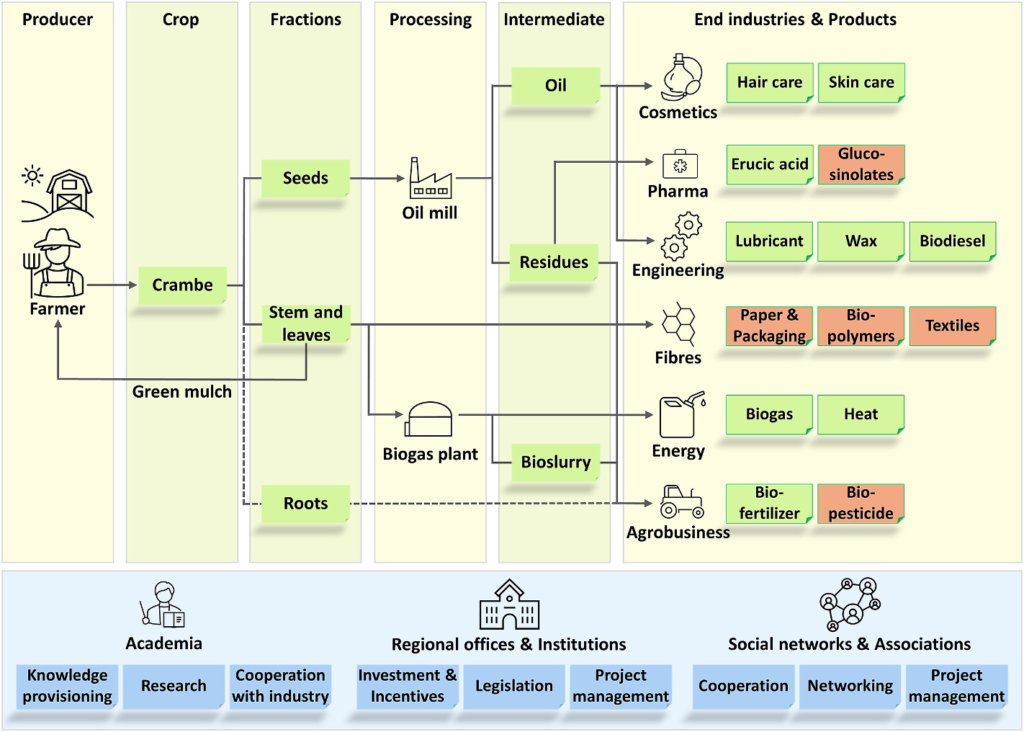The MIDAS project is committed to unlocking the potential of industrial crops on marginal lands, and a recent paper published by MIDAS partners at the University of Hoenheim sheds light on the prospects of one such crop: crambe (Crambe abyssinica).
Crambe, a drought-resistant and non-edible oil crop, presents a sustainable solution for biomass production on marginal lands. Its low fertilizer requirements and potential applications in natural cosmetics and bio-based products make it an attractive option for promoting regional sustainability and developing innovative value chains in rural areas.

The paper, titled “Prospects of crambe for the bioeconomy of the Swabian Alb in southwest Germany,” focuses on this rural area characterized by marginal shallow and stony soils, making it a prime candidate for exploring the cultivation of resilient crops like crambe. It delves into the opportunities and challenges of cultivating and processing crambe in this specific region.
The MIDAS research team, led by the University of Hohenheim, with the support of University of Bologna and CRES (Centre for Renewable Energy Sources Greece), employed a multi-faceted approach to assess crambe’s potential. They conducted a thorough literature review, gathered insights from key stakeholders through questionnaires, and performed a SWOT analysis to evaluate the strengths, weaknesses, opportunities, and threats associated with crambe cultivation in the Swabian Alb.
The study’s findings reveal that crambe holds promise for the region. However, while establishing a full-fledged value web, which combines multiple value chains and stakeholders, currently seems not feasible, a more limited value chain involving farmers, cosmetics companies, and biogas plants appears to be the most viable option at present. A value web, compared to a single value chain, offers greater resilience and potential for economic growth by creating a network of interconnected stakeholders and diversified revenue streams. In order to expand this value chain opportunity into a wider value web, more information and engagement activities with local stakeholders are needed. European Innovation Action projects could help in this, by providing more information about crambe cultivation and by ensuring the ecological and social sustainability of the value chain, while economic viability will require the involvement of other stakeholders in the value web, to match supply and demand.

The successful implementation of this approach in the Swabian Alb could serve as a model for assessing the sustainability of novel biobased value chains in other regions, ensuring a holistic consideration of social, economic, and environmental dimensions.

